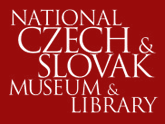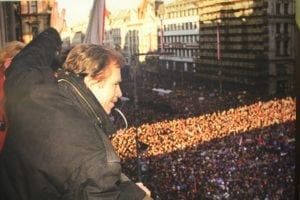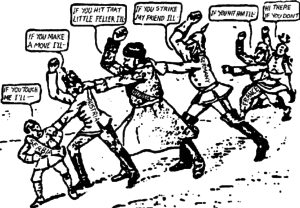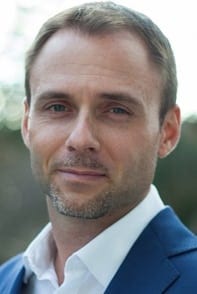Looking in the rearview mirror can help us find a better destination, historically speaking, that is. George Santayana said, “Those who do not remember the past are condemned to repeat it.” Many of the NCSML’s upcoming programs take a look at past events in ways that provide understanding of then so we can learn for now. As Santayana also said, “We must welcome the future, remembering that soon it will be the past; and we must respect the past, remembering that it was once all that was humanly possible.”
- Václav Havel was a civil activist of international stature, president first of Czechoslovakia and then of the Czech Republic, and an award-winning author. Havel wrote plays, poetry, and speeches that still inspire millions today. The National Czech & Slovak Museum & Library seeks to honor this incredible man and his many diverse talents by initiating the annual Velvet Voices of Freedom Speech Competition on Jan. 26, 2019. Havel led the people of Czechoslovakia through the Velvet Revolution where they peacefully overthrew communism, and then he led the people through the Velvet Divorce where they peacefully separated into the Czech Republic and Slovakia. The intention of the competition is to celebrate the incredible power of human passion expressed through speech to transform the world.
For more information, email Sarah Henderson at shenderson@ncsml.org.
- Blindfolded: Europe on the Road to the Great War (Sept. 22 opening) Eleven minutes after 11:00 on the morning of the 11th of August 1918, a round of cannon fire in Versailles, France, symbolically ended “The Great War” or as it is most commonly known, World War I. In conjunction with the NCSML exhibition, Guts & Glory: The War Train that Shaped a Nation, this exhibit designed entirely by two graduate students from Palacký University Olomouc provides context and commemorates the 100th anniversary of WWI. The years before the war were similar in ways to the present times: Humankind was living in civilized prosperity and the fate of the world seemed to be held firmly in the hands of a few leaders. A few summer weeks in 1914 changed everything, altering the idea of powerful leaders perfectly understanding the world as a whole and retaining total control in the background.
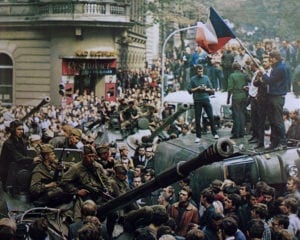
- 1968 (re)ACTION: The Prague Spring exhibit through October. The 1968 Prague Spring (January-August) was a period of political liberalization in Czechoslovakia during the era dominated by the Soviet Union after World War II. The hopes for reform were quashed when the Soviet Union invaded the country in late August. This exhibition marks the 50th anniversary of these historic events and portrays through photographs, video, and political cartoons the myriad emotions, actions, and responses these events prompted.
- History on the 8s: Czechoslovak Exile after 1948. On Sept. 26, Martin Nekola, Ph.D., a political science scholar and author from Prague, will discuss all aspects of the Czechoslovak Cold War exile focusing on immigrants to the United States.
- And more!
Check the events page for more classes, exhibitions, and experience.
Let me know if you’re interested in supporting these programs by contacting me at DMcInnis@NCSML.org or at 832-877-8821.
